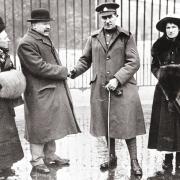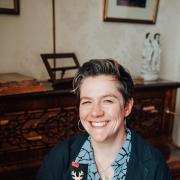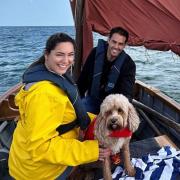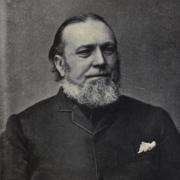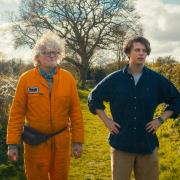A work day out, sea fishing on the north Norfolk coast proved a great success but Ashley Mullenger enjoyed it so much that she booked again, this time without her office colleagues. And again. In fact she returned so many times that the boat’s skipper offered to take her out for free if she would learn to crew for him.
Six years later she has won the fisherman of the year award, appears on television and in the press as one of the few women in the industry, has a share of the business with her skipper Nigel, and has just written a book about her experience.
My Fishing Life was published in May and is a revealing account of the plight of our fishing industry as well as telling Ashley’s personal story of making a living following the tides at Wells-next-the-Sea.
‘I don’t know what it was that drew me to it,’ she says of her obvious passion for what is, she concedes, dirty, messy, hard, unsociable and dangerous work. ‘I grew up in Great Massingham and I enjoyed fishing in the ponds there and angling in rivers but I had never tried it at sea.’

She liked being outdoors, though, and wasn’t flourishing in her office job dealing with plumbing and heating problems. ‘Every day was the same: work, eat, sleep, on repeat. I would get the Sunday night blues anticipating work the next day.’
Nigel recognised how unhappy the job was making her, and how much she loved being on the boat, so offered Ashley the opportunity to try something different. He employed her initially as another pair of hands, gradually training her in all the various tasks. And it’s still very much about teamwork. ‘He knows my limitations and we’ll lift some things together, for example. But your body learns very quickly where it needs to use muscles and, on a constantly moving platform, how to keep upright and balanced.’
Now they run a 10m fishing boat together, catching mackerel, crabs, lobsters and whelks according to the season, and have recently taken to selling that day’s haul from the quayside at Wells.
‘It’s mainly in the summer months when you’ve got visitors as customers and more species to offer,’ says Ashley. ‘It would be nice to see fishmongers back in the high street. There are a few who will buy from small UK registered boats and who will give you the provenance with their fish, and they’re doing fantastically. But most of us do a weekly shop in the supermarkets where they are pumping us with unseasonal, anonymous fish. We need them to realise they can’t run fish counters and to hire out the space to people who can.’

The consumer needs to get proper advice on what they’re buying, where it’s come from, and how to cook it, she says. ‘Fish is so good for you and is such a quick thing to cook. We need to make fish less scary for people.’
She advises us all to buy seasonally and locally. ‘In supermarkets there are pictures of the farmers who are producing the milk or eggs you are buying, but fishing doesn’t seem to have caught up.’
There is an MSC logo which certifies that seafood has been fished sustainably, she says, but that applies only for the bigger boats - the requirements are too prohibitive for smaller fishermen to comply. ‘All I can tell you is that I fish responsibly and you have to take my word for it.’
Ashley is increasingly using social media. ‘There I can showcase how and why I do things,’ she says. And she hopes, too, that her book will help share her story and that of others working at sea.

'The fish in the sea are a public resource. I feel people have the right to know what’s going on with it. We export 80 per cent of our fish. If I can do something to help change this, then I will.
‘I want to send a message to the British public about where our industry is, but you have to know where it’s been - our industry doesn’t make sense unless you know what happened 50 years ago, and why the fleet in this country is shaped the way it is.
‘There are only 11,000 fishermen left. I feel sometimes we are an endangered species. Conservation and green energy are important, too,’ she says, referring to the impact of the offshore wind farms on fishermen. ‘But we need to find a way to coexist so that everybody’s best interests are looked after. The small boats are struggling with all the things that are pushing against us.’
The challenges of dealing with environment issues, politics and in running a business which is being increasingly dominated by bureaucracy are taking their toll.

‘I speak to a lot of fishermen where this has been their entire life and you see the hurt in their faces. This is not just a job, it’s a lifestyle and you see the anguish of what they’ve lived through. I’m in a unique position being one of the few women who work on boats so I hope I can use that platform to make some kind of positive change for the small scale fleet.’
There were only two or three women working full time when Ashley started, but there are now around 20, she thinks, and she hopes others might be encouraged to try it too.
‘The welcome I’ve had has been phenomenal. I think if you like being outside and physical work, it’s the perfect job. Though you can’t run to a timetable – if children need picking up from school and you can’t get back to harbour, you’ll need a good support network,’ she says.
‘It’s so refreshing to be able to roll out of bed, not worry about brushing your hair or putting on make-up. When I worked in an office, I presented myself in a certain way but the sea doesn’t care what you look like. And this carries on through everything else that you do. You learn to accept yourself for who you are. It’s very liberating.’

And though getting up at four in the morning or working through the night may seem a punishing routine, this too has its rewards, she says. ‘Hearing the birds as daylight’s breaking with no one else about is lovely, and even in the winter we can have glassy, calm, beautiful, cold days.
‘The hostility of the sea, the raw nature, the acceptance of the environment, the feeling of oneness with where you are and being so isolated - I find it really cleansing and just a lovely, lovely place to be. I love what I’m doing.’
My Fishing Life is published by LittleBrown, priced £22.




